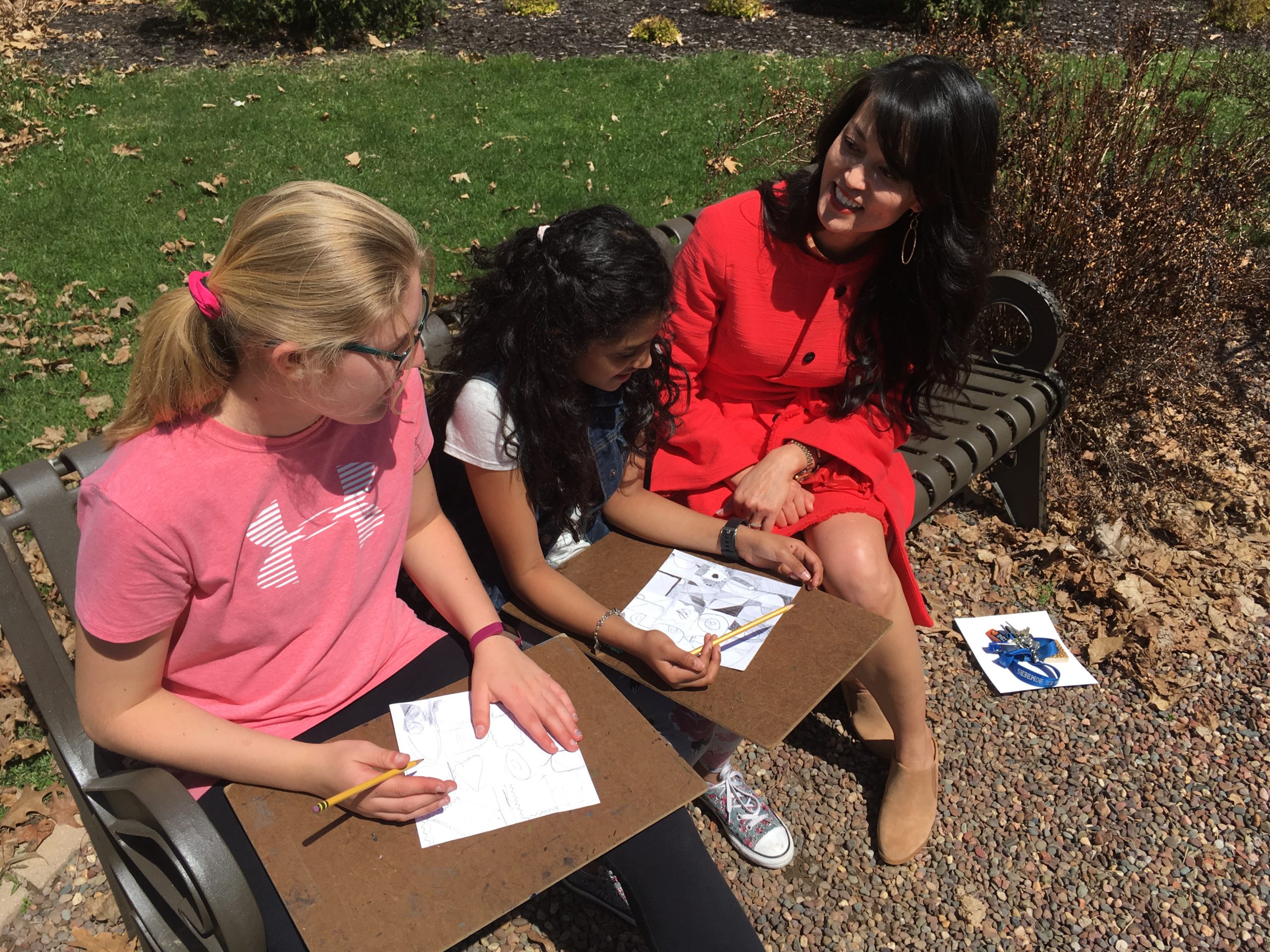KOHLER, Wisconsin—When Superintendent Quynh Trueblood’s mind races in the middle of the night, she quickly finds herself using a mixing bowl and her oven.
“When I bring in baked goods, people in the district know I couldn’t sleep” says Trueblood, who has led the single-building Kohler Public Schools in Wisconsin for the past six years.
“I slept so well when I was a teacher—I used to be a 10-hour-a-night sleeper, now I’m a 3-in-the-morning waker-upper.”
In fact, she had a plate of fresh scones ready on the day District Administration visited her office in the pre-K-through-12 building the district operates a few miles from the shores of Lake Michigan. The village, an hour north of Milwaukee, was built in the early 20th Century as a model town by the Kohler company, the global manufacturer of kitchen and bathroom fixtures. Its headquarters and factory still dominate the landscape, and the village now houses many company executives.
As a relatively affluent and high-performing district, there’s constant pressure on Trueblood to produce top results. “If you are winning the race, what does it take to beat your own record?” she says. “That’s a real challenge.”
But does that keep her up a night? She confesses that what most often robs her of much-need rest is being an effective leader and, in particular, supporting a successful staff. “I’m constantly thinking ‘What am I doing to help them lead,'” she says. “It’s about having the courage to look at myself before looking at others—I don’t want be the reason we’re not doing our work.”
College dance delivers a life lesson
“Courage” comes up as a recurring theme when one spends a few days touring the Kohler school with the enthusiastic and energetic Trueblood. Choosing public education as a career requires a special kind of courage, she says. And for her, that bravery came from her mother, who brought only a sewing machine when she and Trueblood’s father left their relatives and everything familiar to flee the Vietnam War for a new life in America
The family settled in Minneapolis, where they had to go on welfare. Trueblood recalls the stress she felt as an English language learner who wanted to get a perfect score on every spelling test.
She remembers missing out on a perfect score once because she misspelled “guitar.” “I wouldn’t say I was a top student anywhere, at anytime” she says. “I was a personal mastery student trying to do my very best.”
Some of the landmark moments of her youth revolve around her family’s evolving identity. “One of the proudest days of my mother’s life was when we went off welfare and she felt like a full, contributing citizen of United States” she says. “My proudest moment was when I said the ‘Pledge of Allegiance’ as student council president in high school.”

At the same time, Trueblood’s family aggressively maintained its heritage with some 50 relatives who’d also found a new home in the Minneapolis area. They gathered every weekend and celebrated traditional events such as Chinese New Year.
Yet, Trueblood had mostly white friends while growing up. She says her ethnicity came into focus more sharply when, during her time at the University of Wisconsin-Madison, her white roommate was not allowed into a campus Vietnamese Association Dance. Trueblood, who left the event promptly and “in shock” says she later realized the incident had exposed some of the confusion and anger she had been experiencing around her integration into American society.
“I didn’t do my part to see it from the association’s side—that we have a responsibility to preserve who we are, unfiltered and original and honest” she says. “I wasn’t sophisticated enough to say, ‘Wait a minute, I shouldn’t have left.’ I should’ve participated. I should have tried to understand more.”
Leaving the ‘sacred world’
Trueblood says she fell in love with the purity of chemistry in college. But she suffered another moment of conflict when, after a life-changing experience as a sixth-grade summer camp counselor, she prepared to tell her parents about the career she had chosen. And it wasn’t in a hospital or laboratory.
“I was afraid to tell my parents that I had an inkling to be a teacher because I thought I was headed into a profession of ‘great renown,’ like medicine or the law or business” she says. “But they were so proud—they said, ‘Where we come from, teaching is the noblest profession of all.'”
She went on to teach high school chemistry for 14 years in Sheboygan, a more economically diverse and larger city next door to Kohler. “I knew a lot about chemistry, and not as much about kids” she says. “I learned a lot about how kids see the world and that’s when my teaching really elevated.”

She made the jump to administration when the school’s principal encouraged her to apply for an assistant principal’s job that had come open.
That, she says, took some courage on the principal’s part because he had to rearrange the roles of other administrators so Trueblood wouldn’t wind up in the uncomfortable position of having to supervise some of her former colleagues in the science department.
He also provided her with experience in areas such as special education, in which she hadn’t worked. A few years later, with some prompting from colleagues in the local education community, she set her sights on becoming principal and superintendent in Kohler.
“I think the classroom is a sanctuary where all the sacred things happen—I felt like I had left the sacred world, and I often wanted to go back” she says. “Being farther away from kids has been a bit of professional torture for me.”
Compassion and compensation
Today, Trueblood is laser-focused on the social-emotional development of her 750 students as she works to maintain—and raise—her district’s high-level of achievement. Students are dealing with increased—and in some cases unprecedented—levels of stress driven by ever-heightening academic expectations, social media activity and recurring school shootings, among other issues.
“There is a price maybe our kids are paying, which is the stress of meeting the expectations of all the adults in their lives, and that’s not healthy” she says.
Students thrive at Kohler, not just because of small class sizes and academic programs, but because educators make relationship-building a priority.
“There’s an extra-mile approach all the time—we know a lot about our kids and families” she says. “We are sensors of disruptions. We have no difficulty saying to a student ‘You don’t seem like yourself.’ And we’re never afraid to get side-by-side with that student.”
Every Monday is Kindness T-Shirt Day at the Kohler school. Students are encouraged to perform acts of kindness that make their classmates feel supported and included.
“If we have kind students who understand compassion and empathy, and how to resolve conflict, that leads to students who aren’t isolated and disenfranchised, who aren’t hurting themselves or others” Trueblood says. “We talk a lot about Parkland and violence in the world, and it comes back to isolationism, that is the root cause.”
Trueblood also worries about her teachers and in fact, all teachers in Wisconsin, where collective bargaining has been restricted. That has made the profession far less attractive to college students considering teaching careers.
The pool of candidates, even for high-performing districts like Kohler, has shrunk over the last 10 years because “it’s not a living wage anymore.”
“Where we have placed our teachers in the whole ecology of the economy is basically at the bottom” she says. “I think young people who maybe thought teaching was going to be a really good option do the financials and say, ‘Boy, I don’t know if I can do this.
Matt Zalaznick is senior associate editor.







